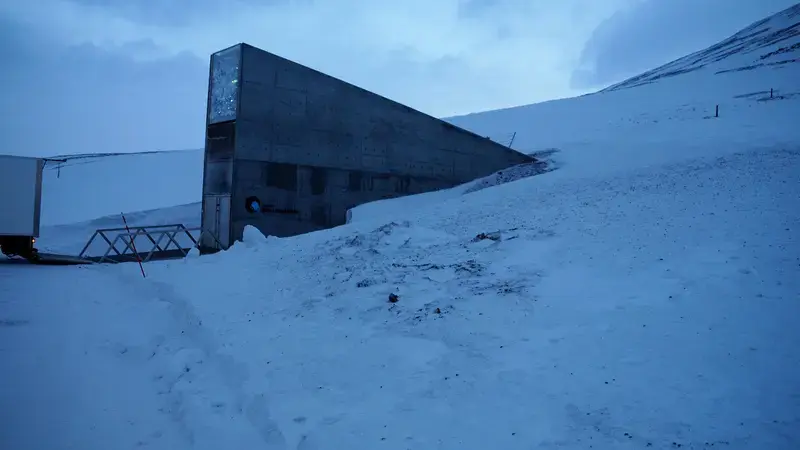Conserving the fragile biodiversity of the world's dry areas

Conserving the fragile biodiversity of dryland regions helps ensure the preservation of vital genetic material – the genetic material we need to breed resilient crops and confront the worsening impacts of climate change. Since its inception in 1977, ICARDA has recognized the crucial importance of this task, and over the past four decades has prioritized the collection, conservation, and distribution of genetic resources.
ICARDA’s genebank – established in 1983 – hosts one of the world’s largest and most unique collections of barley, faba bean, and lentil crops, along with ancient varieties of durum and bread wheat. It holds some 150,000 accessions – 65% of which are unique landraces and wild relatives, many now extinct in their natural habitats.
The genebank is recognized internationally. Of the 2.5 million samples held in 447 of the world’s major crop genebanks, ICARDA ranks first or second in the number of genetic resources it provides for barley, chickpea, faba bean, medicago, lathyrus, lentil, pisum, trifolium, and vicia. It also ranks third for wheat resources. Some 48% of global faba bean accessions, 51% of all lentil resources, and 29% of all lathyrus in these collections are conserved by ICARDA.
Selected biodiversity conservation initiatives and impacts (1977-2017):
ICARDA scientists developed a new technique for searching agricultural genebanks that helps crop breeders and their managers to achieve faster and better-targeted pinpointing of improved crops. FIGS – or Focused Identification of Germplasm Strategy – provides breeders with an efficient short-cut to a best-bet list of promising accessions, thereby reducing the resources required to mine genetic resource collections.
In 2014, the Center turned a crisis into an opportunity when the conflict in Syria forced ICARDA to decentralize its seed collection and crop-breeding program. To prevent losses, the Center sent some 116,484 accessions to the Svalbard Seed Vault, a secure facility located 1330 kilometers south of the North Pole, buried deep beneath thick rock and the Arctic Permafrost.
Just a year later, however, it withdrew seeds from the vault to reconstitute new seed collections in Morocco and Lebanon. This event marked a crucial milestone in the Center’s decentralization and its emergence as a more efficient and relevant research organization. Decentralization enabled the Center to more effectively respond to the needs of its national partners who rely on ICARDA’s genetic material for their crop development programs.
